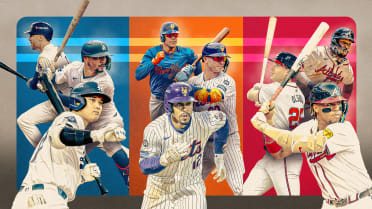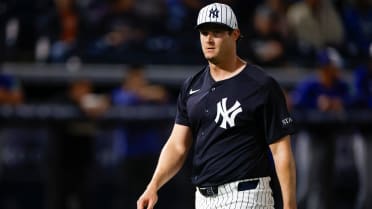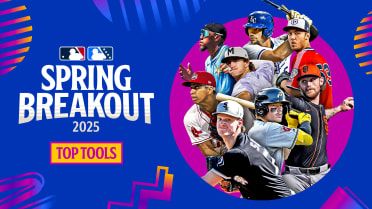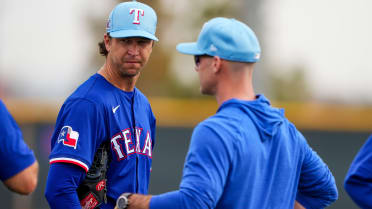Verlander nets 250th win as Deadline uncertainty looms
NEW YORK -- Given the date on the calendar, when Justin Verlander earned his 250th career win in a 5-2 Mets victory over the Nationals on Sunday, the performance only seemed to matter within the context of one thing. The Trade Deadline is two days away, Tuesday at 6 p.m. ET. Verlander is a valuable pitcher who has been throwing as well as any Major Leaguer in recent weeks. It does not take much to connect those dots: a team willing to trade Max Scherzer might be willing to deal Verlander, as well.
Speaking before Sunday’s game, general manager Billy Eppler hardly denied rumors that the Mets are shopping Verlander, saying he intends to field offers on anyone.
“I mean, we’re going to listen,” Eppler said. “But our price points are high. We have valuations on our existing personnel, and the bar is high to meet it.”
The question, then, becomes whether Verlander would be amenable to a move. Like Scherzer, he holds a full no-trade clause. Also like Scherzer, his opinion of the organization has changed in recent days. Asked directly if he would waive his no-trade clause to move to a contender, Verlander was noncommittal.
“I think it largely depends on how the organization views next year,” Verlander said. “I think [the Scherzer trade] is a tough sign for trying to go back at it. I’m committed to trying to win a championship here, but if the organization decides that that’s not exactly the direction that they think is the best fit to go for next year and go for it again, then yeah, I would be more open to it.”
Verlander added that he intends to keep private any conversations he has with Eppler and owner Steve Cohen, the former of whom has spent much of this weekend placating players unhappy with his two recent trades.
Might two become more? The difficulty with trading Verlander is that, as things currently stand, he is a surefire member of the Mets’ 2024 rotation. But if the Mets can net the same style of return they did in dealing Scherzer for Top 100 prospect Luisangel Acuña, they’ll have to consider it. They can always replace Verlander in free agency this winter, as Eppler acknowledged in noting that he plans to be active there again. And they might be able to net a significant return, considering Verlander’s postseason pedigree and 1.49 ERA over his last seven starts.
Essentially, the Mets must deduce that trading Verlander offers a clearer path to short-term competitiveness than keeping him.
“I guess it’s kind of wait and see,” Verlander said. “See what opportunities come my way, their way, see who else potentially gets traded. There’s a lot of moving parts here. Right now, there’s a lot of gray area. And I can’t make a decision with a bunch of what-ifs.”
Although the possibility of a selloff has loomed over the Mets for much of July, it did not crystalize until the team dealt closer David Robertson to the Marlins late Thursday night. Even then, the idea of a large-format sale did not seem to register in the clubhouse until the Mets traded Scherzer to the Rangers on Saturday. With that, first baseman Pete Alonso said, even nonbelievers began realizing that anyone could go.
“I think it’s the unknown that drives players crazy,” manager Buck Showalter said. “You try to tell them everything that you know and being frank and upfront. You don’t know if anything else is going to happen.”
Realistically, more things will. At the least, the Mets have two impending free agents in Tommy Pham and Mark Canha who have been performing well enough to make deals seem inevitable. Plenty of others, including reliever Brooks Raley and of course Verlander, could also be on the move.
Some players, such as Pham, have been through this sort of thing before. A Deadline acquisition of the Rays in 2018 and the Red Sox in 2022, Pham laughed earlier this weekend when another reporter -- at least the second of the day -- approached him to ask about trade possibilities.
“I don’t even think about it until they pull me into the office and tell me,” Pham said.
But that doesn’t mean he and Verlander are immune to the emotions that come with being traded -- or even just the possibility of it.
“You never assume just because someone’s a veteran player and has been through it before that it’s not an issue,” Showalter said. “I’ve never had someone go, ‘Ah, it’s no big deal. I’ve been through this a hundred times.’ It is a big deal. It’s their families. It’s their lives. They’re human beings, not pieces of meat.”
Senior Reporter Anthony DiComo has covered the Mets for MLB.com since 2007.




